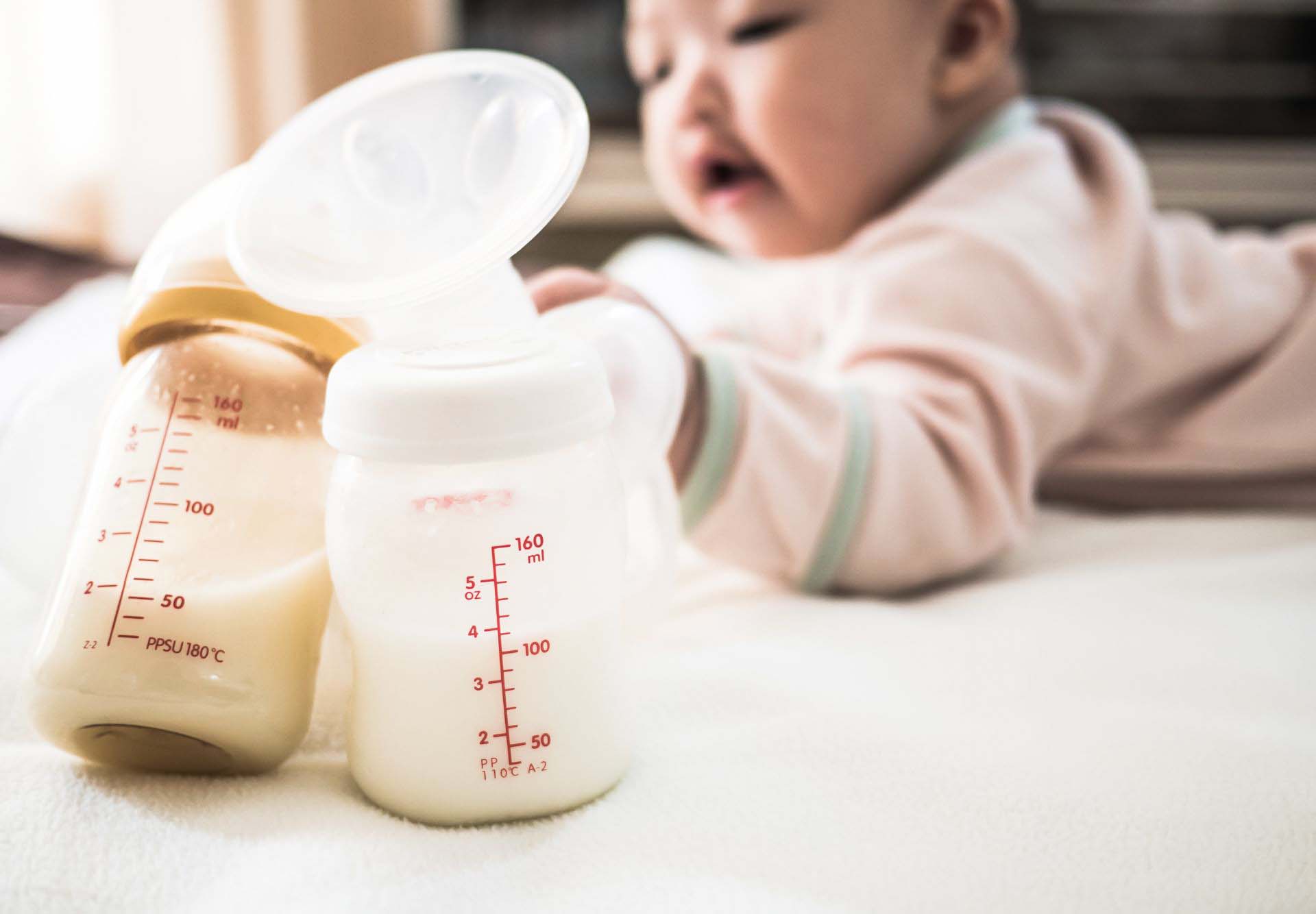Discover how to properly store breast milk, ensuring it remains safely and securely preserved for future feedings. Follow our guidelines to maintain the quality and freshness of this essential nourishment for your baby.
There’s a reason why breastmilk is sometimes referred to as “liquid gold”: it’s loaded with the nutrients and antibodies that infants require. According to scientific research, breast milk is ideal because it comprises 87% water, 7% lactose, 4% fat, and 1% protein. In addition, it contains growth hormones, antibodies, beneficial gut flora, vitamins, minerals, and enzymes. It’s hardly surprising that parents are concerned about milk storage, especially those who rely on pumping to maintain a sufficient supply for their kids while they work.
Yet, incorrect milk storage can damage these vital characteristics. Here is everything you need to know to maintain the quality of your liquid gold.
Where Should Breast Milk Be Stored?
It is hard to think that milk may be kept at room temperature without spoiling, yet this is true of breast milk. Human milk contains antibodies that are capable of destroying a variety of germs and viruses.
If you intend to save breast milk for more than a few hours, refrigerate or freeze it instead. Nevertheless, never store anything in the refrigerator or freezer door. Kelly A. Hightower, R.N., a licensed lactation counselor, advises, “It’s best to keep it in the back, where it will be less exposed to the fluctuating temperature of the door opening and closing.”
Individuals without access to a refrigerator, whether due to work, vacation, or another reason, can keep milk safe for up to 24 hours in an insulated cooler with ice packs.
How to Keep Breast Milk Fresh
Breast milk can be safely and easily stored in the refrigerator or freezer. Here are the necessary supplies and safety precautions for keeping your milk as fresh as possible.
Supplies for preserving milk:
If you intend to preserve breast milk in the refrigerator or freezer, you should stock up on the following items to make pumping and storing as simple as possible.
- The screw caps.
- Plastic bottles and cups with tight-fitting caps.
- Pre-sterilized storage bags for breast milk.
- Use permanent markers or stickers to date and time stamp bags.
- A readily accessible part of the refrigerator or freezer for organizing milk bags.
Secure your breast milk.
Ensure that the bottles or bags are properly secured to prevent leaking and rotting. “The majority of breast milk storage containers hold up to five ounces, although it is advisable to have containers that hold less. Occasionally, your infant will want only two ounces. Therefore there is no need to defrost a larger quantity “according to Hightower.
Never combine warm and cold.
The Centers for Disease Control and Prevention (CDC) do not recommend combining freshly extracted breast milk with older, chilled, or frozen milk from the refrigerator or freezer. Mixing fresh breast milk with older breast milk may be advantageous because it will equalize nutrients from different pumping times, but the CDC advises that the warmer temperature of freshly expressed milk should always be cooled prior to mixing to prevent bacterial growth in the colder milk you’re attempting to store.
How Much Breast Milk Should I store?
It is best to avoid wasting breast milk if you keep only the amount you need for each feeding. For instance, if your infant consumes 6 ounces per feeding, you should place 6 ounces of breast milk in the storage container. There may be instances when your baby is not ready for a complete feeding, such as when his or her growth spurts have slowed or when you’ve begun to introduce solids.
How long can breast milk be stored?
Put the date on the bottles or bags to ensure that no outdated milk is consumed. Generally speaking, breast milk can be stored:
- 4 to 8 hours at ambient temperature (less than 77 degrees F).
- The back of the refrigerator for three to eight days.
- Inside the depths of a freezer for up to three months.
If your breast milk has been defrosted in your refrigerator, Hightower suggests utilizing it within 24 to 48 hours. And if you have a deep freezer, breast milk can likely be stored for up to a year. “It’s not that storing your breast milk in the freezer for longer will cause it to spoil and make your infant sick. Yet, its nutritious value will drop,” Hightower affirms.
Meaningful articles you might like: 4 Factors That Can Reduce Your Milk Supply, What Every Parent Should Know About Storing Their Breast Milk, 7 Facts Parents Need to Know About Non-Dairy Milks

